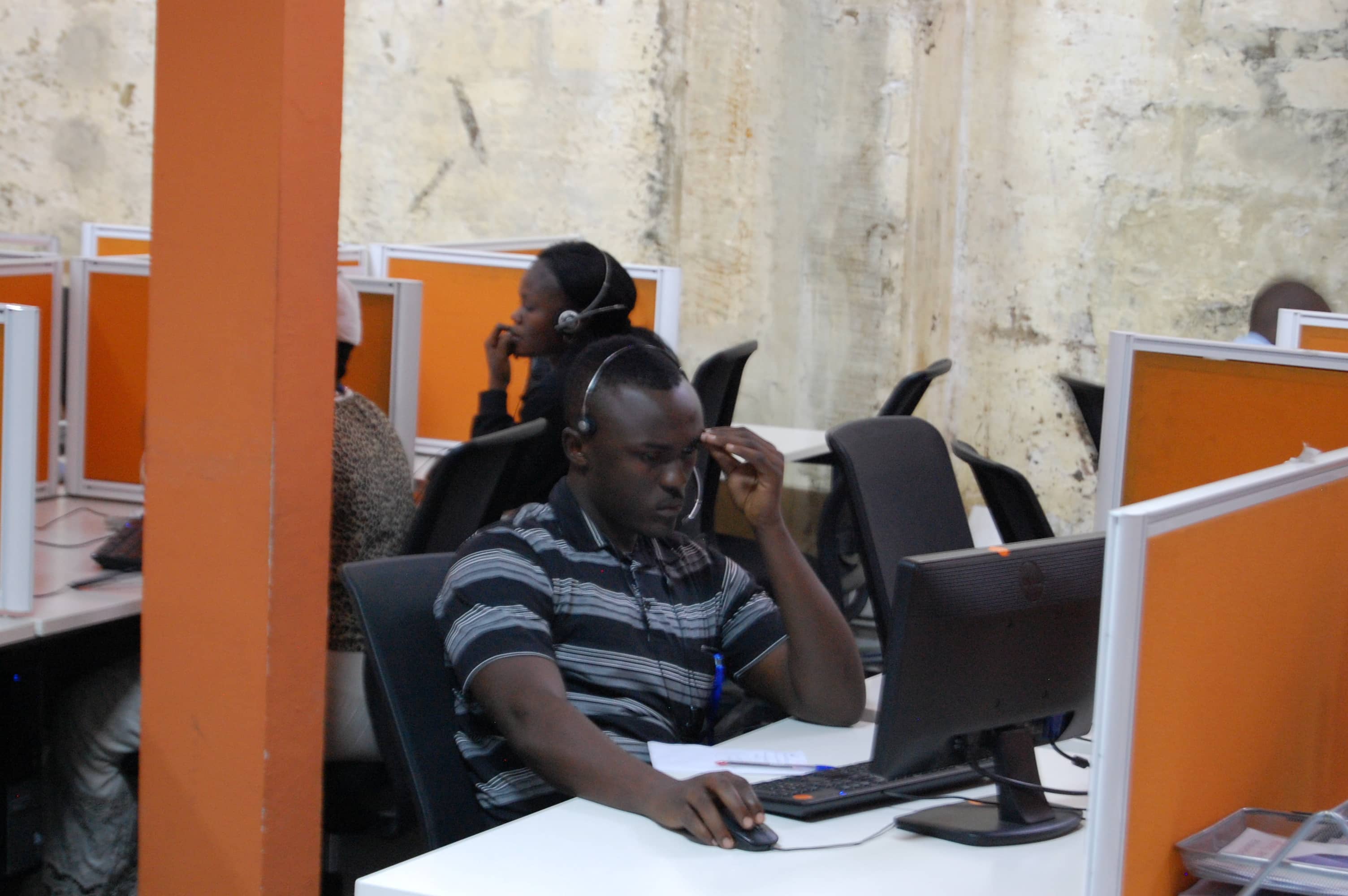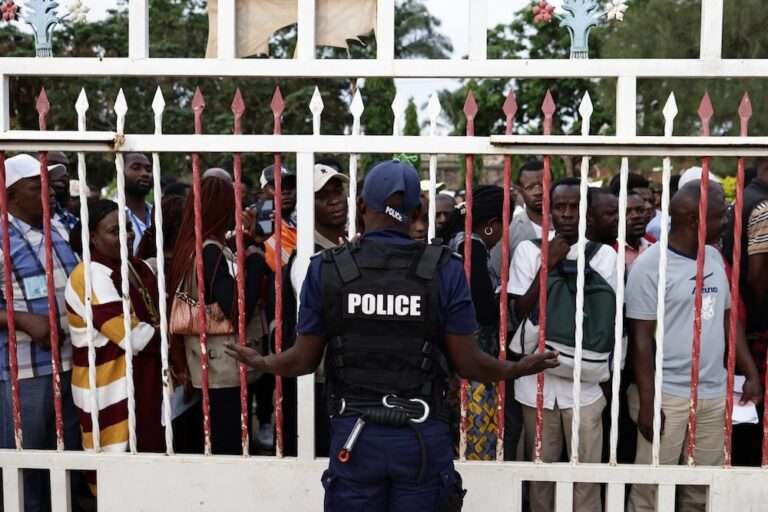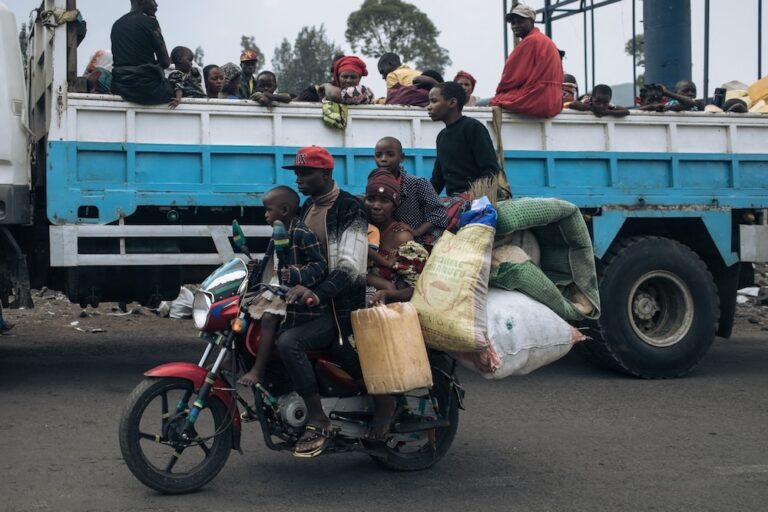As President Kabila remains in power past his established mandate, DRC instructs telecom companies to block access to social networks and suspend internet access.
This statement was originally published on rsf.org on 16 December 2016.
Reporters Without Borders (RSF) and its Congolese partner organization, Journaliste en Danger (JED), are very concerned about a series of curbs on the free flow of information in the DRC in the run-up to 19 December, when Joseph Kabila’s mandate comes to an end. They urge the authorities to allow the media to operate with complete freedom and safety.
Censorship measures affecting the media and the public’s access to information have included an announced Internet shutdown, bans on political programmes in Kasai-Oriental province, police raids on media outlets and the continued jamming of Radio France Internationale broadcasts in Kinshasa.
Both local and national authorities have been responsible for the many media freedom violations.
On 14 December, telecom companies received a letter from the Posts and Telecommunications Regulatory Authority (ARPTC) [5] – an offshoot of the president’s office – instructing them to block access to social networks from midnight on 18 December and to suspend all Internet access if targeted blocking is not possible.
According to Jeune Afrique, the telecom operators have been warned that their licences could be withdrawn if they do not comply.
In Kasai-Oriental, the governor has reinforced a curfew and has banned the broadcasting of any political programme or debate. He said the aim was to “prevent any messages or reports that incite hatred, public order unrest or violence.”
It was in Kasai-Oriental that an RTNC journalist, Marcel Lubala, was murdered on the night of 14 November. Several sources have said the police were involved in his death.
“Journalists should not have to comply with these measures because, for the sake of freedom of information and expression, they have a duty to be critical and to cover and question the decisions and actions of the government and politicians, in order to maintain a responsible public debate on issues that concern the entire population,” JED said.
In Matadi, the capital of Kongo Central province, men in police uniforms stormed into two TV stations – Canal Congo Télévision (CCTV) and Horber Télévision (HTV) – on 6 December as they were broadcasting debates about a proposed motion of no-confidence in local governor Jacques Mbadu. The broadcasts were cut short, journalists were roughed up and broadcast equipment was ransacked.
“By continuing to adopt draconian measures against media outlets and by allowing attacks on journalists to go unpunished, President Kabila is revealing anti-democratic intentions that bode ill for 19 December and the days that follow,” RSF said. “All the recent censorship measures and unpunished attacks on the media are warnings that no dissent or protests will be tolerated.”
Kinshasa police chief Célestin Kanyama – the target of recent European sanctions requested by RSF and other organisations [12] – has threatened violent reprisals against anyone venturing on to the streets from 19 December onwards, presumably including journalists.
He even warned parents that if they let their children go out, they should “take a good look at the photos of their children, because it will be the last time they see them.”
In September, RSF and JED asked deputy prime minister and interior minister Evariste Boshab [13] (the target of US sanctions) to conduct an enquiry into the violence against at least eight journalists when the security forces dispersed protests in Kinshasa on 19 and 20 September.
Since November, the international media have been the targets [14] of measures designed to silence them. RFI’s signal in Kinshasa has been jammed since 4 November.
The Democratic Republic of Congo is ranked 152nd out of 180 countries in RSF’s 2016 World Press Freedom Index. [15]
Links:
——
[1] https://rsf.org/
[2] https://www.facebook.com/Reporterssansfrontieres
[3] https://twitter.com/RSF_Africa
[4] https://rsf.org/fr/actualites/censure-et-violences-contre-les-journalistes-une-sombre-fin-de-mandat-pour-le-president-kabila
[5] https://rsf.org/sites/default/files/censure_reseaux_sociaux_rdc_19122016.pdf
[6] https://rsf.org/fr/campagnes/rsf-et-86-organisations-appellent-sanctionner-de-hauts-responsables-en-rd-congo
[7] https://rsf.org/fr/actualites/manifestations-kinshasa-rsf-et-jed-demandent-louverture-dune-enquete-apres-les-violences-commises
[8] https://rsf.org/fr/actualites/mesures-liberticides-du-ministere-de-la-communication-contre-les-medias-etrangers
[9] https://rsf.org/fr/ranking
[10] https://en.rsf.org/
[11] https://rsf.org/en/news/censorship-anti-media-violence-run-constitutional-end-kabila-mandate
[12] https://rsf.org/en/campaigns/rsf-and-86-organisations-ask-euus-sanction-senior-dr-congo-officials
[13] https://rsf.org/en/news/rsf-and-jed-call-investigation-violence-against-journalists-covering-protests
[14] https://rsf.org/en/news/drc-congolese-information-minister-gags-foreign-media
[15] https://rsf.org/en/ranking
[16] http://www.rsf.org/
[17] http://www.twitter.com/RSF_Africa
[18] http://www.facebook.com/reporterssansfrontieres



